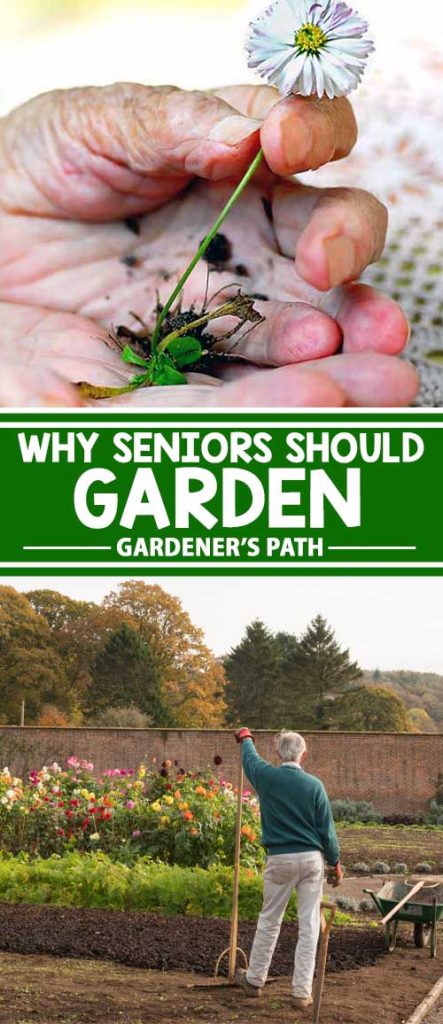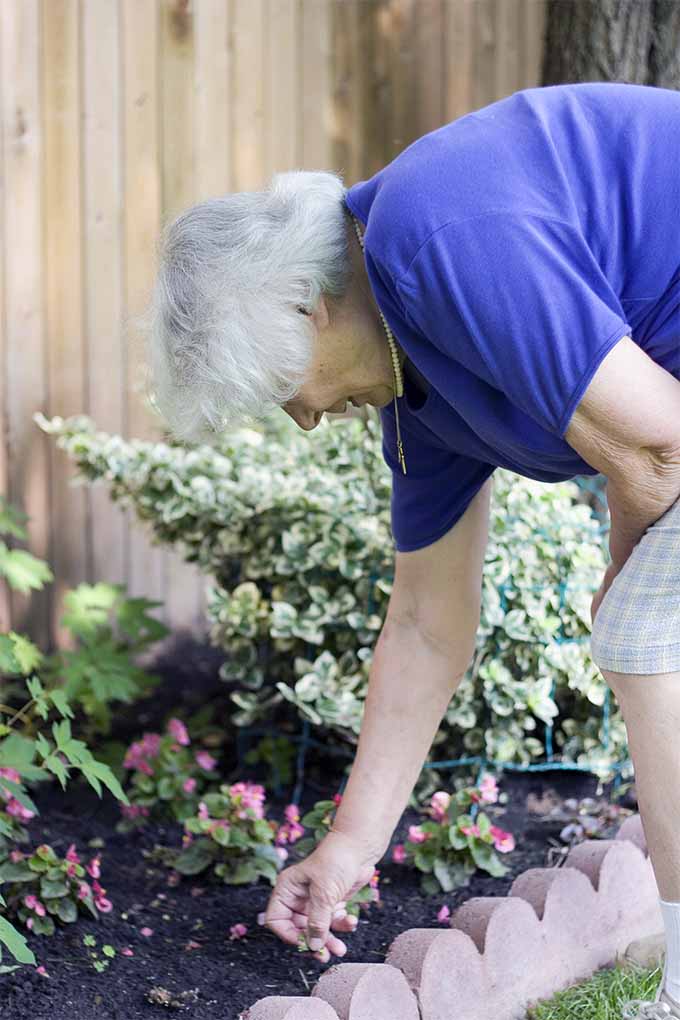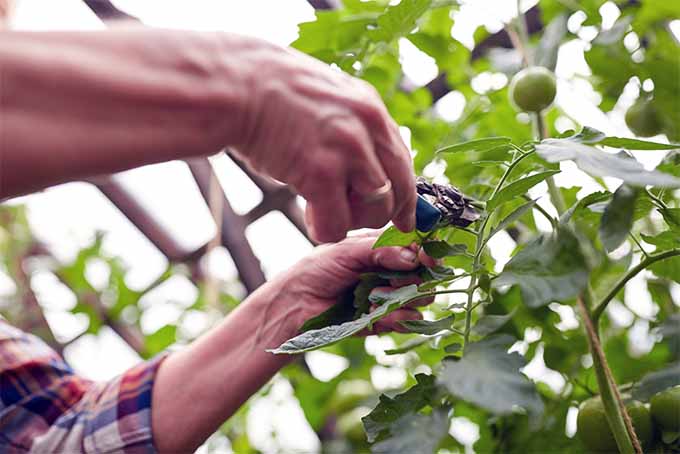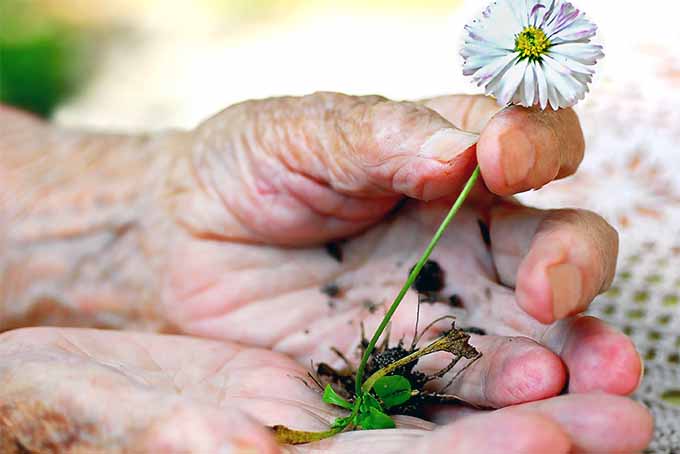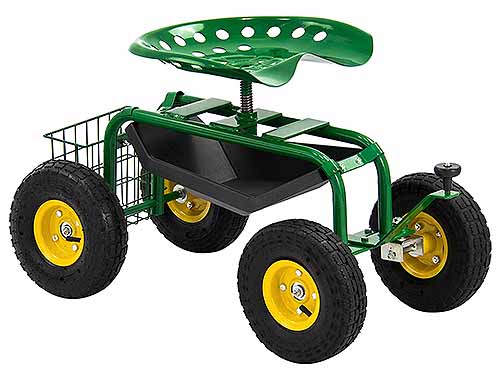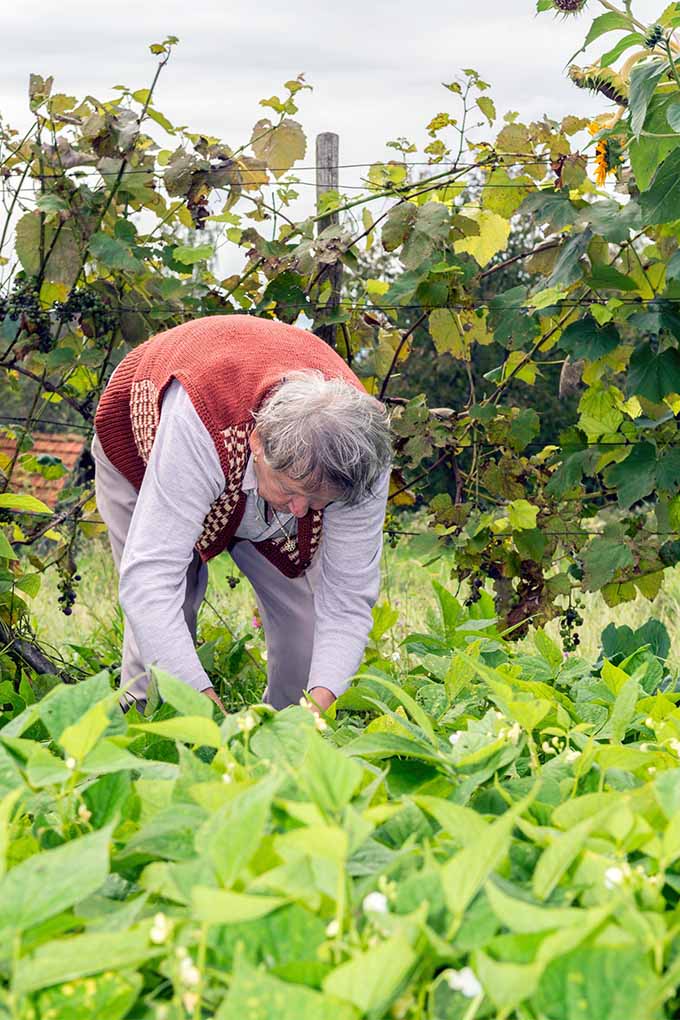Her first activity involved tending to her peony bushes, and setting up a garden trellis for some climbing florals. If this isn’t proof that the gardening bug never leaves us, I don’t know what is. Even at an age when many of us are slowing down and cutting out activities, more seniors are reluctant to give up horticulture. That is how it should be! While it’s reasonable to slow down a bit, there are many things we can do as we age to keep our gardens as beautiful and productive as ever. Since gardening has so many perks, it’s wise to incorporate some of the tips and tricks we’ll discuss below into the routine. From changing up tools to adapting when you work, the following tips can help keep the gardening bug alive throughout your life!
Benefits of Horticulture for Seniors
Not only is gardening a good form of low-impact exercise, it exposes us to much-needed fresh air and sunshine.
Gardening requires focus, which keeps the mind sharp and increases attention spans. Other pleasant side effects of tinkering in the flower beds at any age include:
Decreased risk of dementia – up to 36%! (Dubbo Study) Improved hand strength and dexterity (Kansas State University) Lower stress levels and higher self-esteem (Dutch study) Reduction in heart attack and stroke risk (Age UK)
If this hasn’t convinced you that everyone should garden, there are some less scientific reasons to encourage a green thumb as well. Gardening for my family has helped bridge the gap between my own children and their great-grandmother. In an age when they communicate via Facebook, it’s vital to have a common bond to practice their face-to-face relationships. Gardening is that bond.
Obstacles to Overcome
Even though our most treasured generation may also be the most passionate about their lawns and gardens, it often isn’t enough. The physical requirements of even keeping a simple raised bed can sometimes seem too much for us as we age. Leaning, standing, stooping, and digging can present challenges and turn off older enthusiasts from gardening, if they’re not given proper tools to assist.
One way that we’ve gotten around some of the struggles that my own grandmother faces is to have frequent chats about her garden. I’ve learned that many of her issues can be resolved easily with the right technique, hack, or even product found online.
Best Practices for a Lifetime of Growing
Many older gardeners may be living alone at home, but will want to continue to have independence outside in the garden. The following tips can help all of us continue with a gardening routine that is meaningful, and allows older hobbyists to live life in a way that’s normal and rewarding.
1. Create Raised Beds
Even at age 38, I appreciate a good raised bed gardening system.
Working up off the ground is not only perfect for pest and weed control, but it also eliminates some of the pain points associated with stooping, kneeling, and working below waist level. A well-conceived raised garden can even be tended to from a walker or wheelchair, making it ideal for various stages of life! See additional benefits and details of raised bed systems here on Gardener’s Path.
2. Sit Comfortably
There is no reason for anyone to have to kneel these days.
3. Protect Yourself
The older you get, the more sensitive you are to heat and sun. Best Choice Products Garden Cart Rolling Work Seat A good gardening hat, sunglasses, sunblock, and a long-sleeved button-up are essential to keeping you cool, and avoiding the risk of sunstroke, burn, or photosensitivity that many common medications can cause.
4. Avoid Peak Hours
In addition to covering up, it’s wise to avoid the sun’s harshest rays during the hours of 10 a.m. to 2 p.m. in most North American time zones.
Adopt a common sense rule about heat and humidity: No gardening outdoors when there is a heat advisory issued by the local weather authorities! Air quality is another common issue for those with respiratory problems, who should stay indoors and avoid strenuous activity if the quality level is low.
5. Go Ergonomic
All tools are not created equal. Spend the extra few dollars for gardening equipment with soft grips, easy-to-hold handles, and a length that is comfortable for your body. I find these to be a game-changer, no matter your age or physical condition!
6. Extend Safety Routines
If you or someone you love has security or emergency services set up in case of a fall or accident, ensure that the service reaches to where the gardening will happen.
The safety system I installed for my grandmother has a large radius, but we moved her flower beds closer to the house to be sure she was within range of her alert base. If you don’t have an alert system set up, but want extra assurance when working outdoors, it’s possible to instead carry a cordless or cellular phone to the places where you garden. Test the range of each to ensure a call for help can be heard – if the need ever arises.
7. Make It Bright
Acquired color blindness is common for people over age 60. Overcome any color confusion by investing in brightly-colored gardening tools and supplies. And make sure that it’s easy to read the labels of common applications, such as fertilizer or weed controllers. You can also paint the handles of tools with neon spray paint to make them easier to find. My husband has been doing this for his garden and tractor implements for years now, and it’s a true time-saver!
Gardening as a Family Affair
Even though all the tips we have shared will go a long way to improving quality of life in the yard and growing beds, there is no better way to ensure a safe gardening experience than by creating a family tradition around your green thumb.
While you may not always have help with everyday weeding and watering, a weekly garden session is a good way to check in with your family and create lasting memories. You won’t regret the time spent together. Invite them over to get their hands dirty! Many community centers, senior centers, and long-term care homes are implementing horticulture activities into the daily lives of their citizens.
With the potential to lower overall health costs and improve quality of life, I am excited to see what new developments are to come regarding elder-accessible gardening. Are you an older gardener who is excited about continuing for the rest of your life? What tips can you share with others so that they may keep doing the activities that they enjoy so much? We’d love to hear about it in the comments! © Ask the Experts, LLC. ALL RIGHTS RESERVED. See our TOS for more details. Product photo via Best Choice Products. Uncredited photos: Shutterstock.
